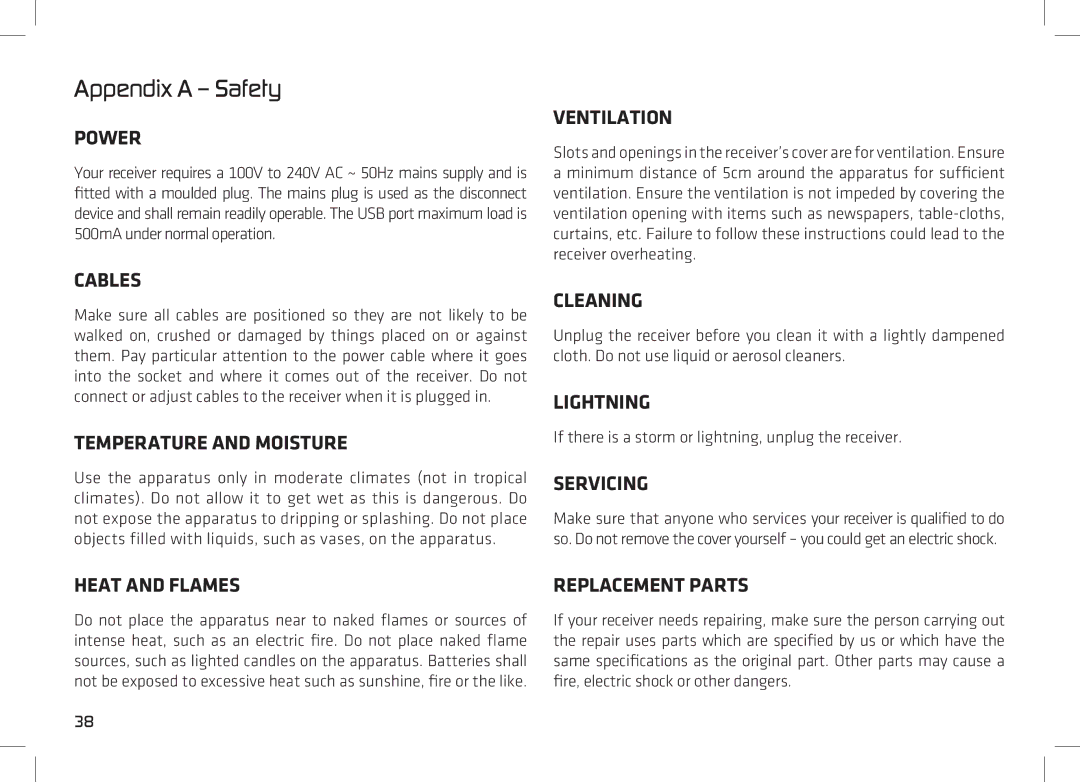
Appendix A – Safety
POWER
Your receiver requires a 100V to 240V AC ~ 50Hz mains supply and is fitted with a moulded plug. The mains plug is used as the disconnect device and shall remain readily operable. The USB port maximum load is 500mA under normal operation.
CABLES
Make sure all cables are positioned so they are not likely to be walked on, crushed or damaged by things placed on or against them. Pay particular attention to the power cable where it goes into the socket and where it comes out of the receiver. Do not connect or adjust cables to the receiver when it is plugged in.
TEMPERATURE AND MOISTURE
Use the apparatus only in moderate climates (not in tropical climates). Do not allow it to get wet as this is dangerous. Do not expose the apparatus to dripping or splashing. Do not place objects filled with liquids, such as vases, on the apparatus.
VENTILATION
Slots and openings in the receiver’s cover are for ventilation. Ensure a minimum distance of 5cm around the apparatus for sufficient ventilation. Ensure the ventilation is not impeded by covering the ventilation opening with items such as newspapers,
CLEANING
Unplug the receiver before you clean it with a lightly dampened cloth. Do not use liquid or aerosol cleaners.
LIGHTNING
If there is a storm or lightning, unplug the receiver.
SERVICING
Make sure that anyone who services your receiver is qualified to do so. Do not remove the cover yourself – you could get an electric shock.
HEAT AND FLAMES
Do not place the apparatus near to naked flames or sources of intense heat, such as an electric fire. Do not place naked flame sources, such as lighted candles on the apparatus. Batteries shall not be exposed to excessive heat such as sunshine, fire or the like.
REPLACEMENT PARTS
If your receiver needs repairing, make sure the person carrying out the repair uses parts which are specified by us or which have the same specifications as the original part. Other parts may cause a fire, electric shock or other dangers.
38
